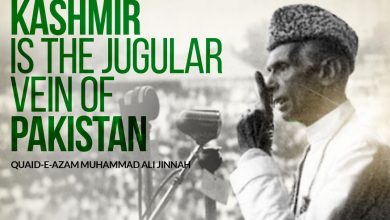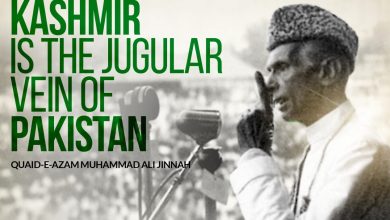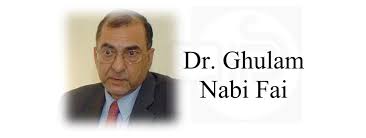 Prof. Nazir Ahmed Shawl was a remarkable figure whose contributions to academia, literature, and social justice have left an indelible mark on those who had the privilege of knowing him. His dedication to the cause of Kashmiris’ right to self-determination was not merely a political stance; it was a reflection of his deep commitment to justice and human rights. As a prolific writer and poet, and a political activist Prof. Shawl utilized his literary talents to amplify the voices of the marginalized, weaving narratives that resonated with the struggles and aspirations of his people.
Prof. Nazir Ahmed Shawl was a remarkable figure whose contributions to academia, literature, and social justice have left an indelible mark on those who had the privilege of knowing him. His dedication to the cause of Kashmiris’ right to self-determination was not merely a political stance; it was a reflection of his deep commitment to justice and human rights. As a prolific writer and poet, and a political activist Prof. Shawl utilized his literary talents to amplify the voices of the marginalized, weaving narratives that resonated with the struggles and aspirations of his people.
In my brief time working with him, I experienced first and his unwavering support and mentorship. Prof. Shawl possessed a unique ability to inspire those around him, encouraging personal and professional growth through his insightful guidance. He was always ready to lend an ear, offering constructive advice that was both compassionate and practical. His genuine appreciation for others’ efforts fostered an environment where everyone felt valued and motivated to excel.
What set Prof. Shawl apart was his exceptional ability to connect with people from all walks of life. His blend of seriousness and humour created an approachable demeanour that made it easy for others to engage with him. He had a knack for making complex ideas accessible, often infusing his discussions with light-heartedness that made learning enjoyable. His approach, ability and warmth made him not just a mentor but also a friend to many.
Despite his many strengths, Prof. Shawl faced criticism and opposition throughout his time period in Kashmir freedom from his migration from IIOJK to his death in London, United Kingdom, particularly regarding his innovative ideas. He never responded to any criticism directed at him or his work with defensiveness; rather, he maintained a steadfast commitment to fostering cordial relationships with all his colleagues working for Kashmir. His dedication to dialogue and collaboration was evident, even when his ideas were not well received by some of his colleagues and organizations.
I remember numerous occasions when he took bold steps against the prevailing winds. For instance, In 2008 prof Shawl participated in the Kashmir Institute of International Relations’ “First Kashmiri Leadership Conference” held in Islamabad. This event marked a significant moment in Kashmir’s political landscape, as leaders from various political parties, including the National Conference (NC), People’s Democratic Party (PDP), and Communist Party of India (Marxist) (CPIM), and leadership of all most all political parties of Azad Jammu and Kashmir came together for the first time. In contrast, the APHC and other diaspora leadership groups chose to boycott the event. Shawl’s participation in such a controversial gathering demonstrated his commitment to dialogue and his belief in the necessity of diverse voices coming together to address the Kashmir issue.
Similarly, when as executive director Kashmir center London he invited Omar Abdullah, the leader of National conference to the Kashmir Conference in London at the Kashmir Centre, many diaspora leaders, as well as members of the Kashmiri and Pakistani communities, protested against his participation. Nevertheless, Prof. Shawl remained undeterred. He understood the importance of engaging with controversial platforms to present his viewpoint about the sufferings of Kashmiris and the urgent need for a resolution to the Kashmir conflict. His willingness to visit contentious venues and engage with different perspectives showcased his courage and dedication to the cause he deeply cared about.
Shawl’s literary contributions, particularly his work titled “From Baramulla to Burham ” will be a treat to read and serve as a significant addition to Kashmir resistance literature. Through his writings, he captured the essence of the Kashmiri experience, articulating the pain and resilience of his people.
The other books of Nazir Ahmad Shawl like “Speaking silence”, “Weaping Wisdom”, “Tormented past and Bruised present” while among that poetry and prose “Speaking silence”, not only reflected the struggles faced by Kashmiris but also inspired hope and a sense of identity among readers. His ability to convey complex emotions and realities through his words made him a powerful voice in the literary landscape of Kashmir.
His book speaking silence was introduced in the International Poetry Festival in Genova city of Italy.
He was also editor Kashmir mirror ,Kashmir update and Views and news published in Islamabad.
Beyond his literary and political endeavours, Prof. Shawl was a true humanitarian. He believed in the power of education and knowledge as tools for empowerment. His commitment to fostering a generation of informed and engaged individuals was evident in his teaching and mentorship. He encouraged his students and colleagues to think critically, challenge the status quo, and strive for excellence in their pursuits. His legacy as an educator will undoubtedly inspire future generations to embrace learning as a means of effecting positive change in their communities.
Prof. Nazir Ahmed Shawl was not just an academic; he was a beacon of hope and a catalyst for change. His legacy will continue to inspire future generations to strive for excellence, advocate for justice, and embrace the power of community. His life serves as a reminder of the profound impact one individual can have on the lives of many, and his spirit will undoubtedly live on in the hearts of those he touched.
In a world often marked by division and conflict, Prof. Shawl’s unwavering commitment to dialogue, understanding, and justice stands as a powerful example for all of us. His contributions to academia, literature, and the Kashmir cause will be remembered not only for their intellectual rigor but also for their humanity. As we reflect on his life and work, let us carry forward his vision of a just and equitable world, where every voice is heard, and every struggle is acknowledged. In doing so, we honor his legacy and continue the work he so passionately championed.
(The writer is chairman of Kashmir Institute of International Relations)








